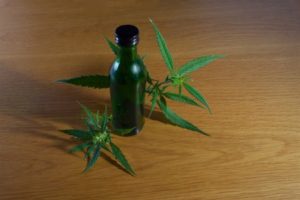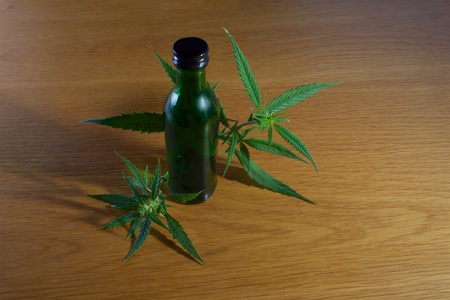
As 2016 drew to a close, the DEA announced its decision to classify cannabis extracts separately under the federal government’s Schedule I category. As Victoria Kim reported for The Fix, the ruling sent ripples of panic through the marijuana industry, playing on fears of what is ahead as our country grew closer to a Donald Trump presidency. While the DEA sees the change as marking a clear distinction between cannabis and it extracts, the marijuana industry sees it as saying that those who sell CBD oil are in violation of federal law. However, according to the DEA, the decision was made to more closely align U.S. policy with the United Nations, which already treats cannabis and its extracts separately.
Writing for Leafly, Bruce Barcott described the DEA announcement as an attempt “to criminalize the status of cannabidiol (CBD).” Hundreds of thousands of people around the country who rely on CBD products will be forced find CBD on the black market, according to the CEO of Women Grow. She said the rule “has the potential to inflict substantial harm to a legitimate industry that has been operating legally worldwide for over a decade.” The executive director of the Cannabis Business Alliance said it creates “unfair barriers for companies with cannabidiol in their products.”
Cloaked in the guise of a bureaucratic technicality, DEA Administrator Chuck Rosenberg made an aggressive bid to wrap CBD into the Controlled Substances Act as a federally illegal Schedule I drug.
In an article he wrote for Leafly on the day of the DEA announcement, Barcott noted where the acting administrator for the DEA said the new code would allow the DEA to track quantities of marijuana extract separately from marijuana. The changes bring U.S. regulations into compliance with international drug-control treaties and present no major change in the law. “Rather it serves to clarify and reinforce the DEA’s position on all cannabis extracts, including CBD oil.” All marijuana extracts will continue to be treated as Schedule I controlled substances.
So what is the uproar if the DEA is merely bringing U.S. regulations in line with international regulations—if marijuana extracts were already Schedule I controlled substances? Barcott said the new rule clarifies the DEA’s position after the 2014 farm bill allowed certain states to grow hemp and blocked federal law enforcement from interfering with state agencies, hemp growers and agricultural research. Hemp-derived CBD oil is available nationwide on web sites and through mail order services. “Those operations survive on the assumption that cannabidiol products below the legal threshold for THC percentage in hemp (0.3 percent or less) are technically legal.” Barcott suggested the rule now says you can grow hemp, but if you try to extract CBD oil from it, the DEA considers that a federal crime.
First, hemp-based CBD products do not have the therapeutic benefits they claim to have. Writing for High Times, Mike Adams noted in his 2014 article, “The Difference Between Hemp Oil and High-CBD Strains,” that while CBD was still illegal in most of the U.S., its rise as “the rock star of the medical marijuana industry” provided the opportunity for some hemp businesses to “market a variation of knockoff CBD treatments that they claim have the same healing power as popular strains such as Charlotte’s Web.” These so-called “knockoff CBD treatments,” while technically similar to medical marijuana strains with CBD, “do not provide the same health benefits as high-CBD cannabis strains.”
However, after patients began submitting complaints about some of these products, including “Real Scientific Hemp Oil,” claiming they were making them sick, a research firm dedicated to cannabidiol education – called Project CBD – launched a full-blown investigation into the matter. After six months, the organization emerged with a 30-page report entitled “Hemp Oil Hustlers: A Project CBD Special Report on Medical Marijuana Inc., HempMeds and Kannaway,” which began as a curious look into an umbrella penny stock company, but transformed into a dissection of the hemp oil industry and its sometimes shady business practices.
Project CBD published a report in 2014 that investigated hemp oil products. The introduction of the report said that Project CBD did not believe that industrial hemp was an optimal source of CBD. On page 13 of the report is a quote from a press release of the Hemp Industries Association. The quote clearly indicates its position:
It is important for America farmers and processors of hemp to understand that most CBD in products mislabeled as ‘hemp oil’ is a co-product of large-scale hemp stalk and fiber processing facilities in Europe where the fiber is the primary material produced at a large scale. CBD is not a product or component of hemp seeds, and labeling to that effect is misleading and motivated by the desire to take advantage of the legal grey area under federal law. Hemp seed oil does not contain any significant quantity of CBD.
So the hue-and-cry about the DEA’s clarification means that the loophole opened by the 2014 farm bill for hemp CBD products has been closed. Retailers selling “knockoff CBD treatments” of questionable medicinal value will now have to stop selling these products or face possible federal prosecution. This is a good thing. But what about the new 7350 drug code proposed by the DEA?
In the Federal Register, vol. 81, no. 240, under “Why a New Code Number is Needed,” it was noted that U.N. conventions on international drug control treated cannabis extracts differently from marijuana and THC. So creating a new drug code for marijuana extracts would allow for more appropriate accounting of these materials consistent with existing treaty provisions. The existing schedules contained in DEA regulations include marijuana as a Schedule I drug (drug code 7360). This listing includes “any material, compound, mixture, or preparation, which contains any quantity of the substance, or which contains any of its salts, isomers, and salts of isomers that are possible within the specific chemical designation.”
Until now, the DEA has used the 7360 drug code for all marijuana extracts. The proposed rule change recommends that a new drug code, 7350, should be used for marijuana extracts. Marijuana extracts “will continue to be treated as Schedule I controlled substances.” In other words, they were always Schedule I substances.
The Single Convention on Narcotic Drugs and 1971 Convention on Psychotropic Substances are international treaties that provide for the international control of marijuana. The schedules under the Single Convention prohibit the production and supply of specific drugs as well as drugs with similar effects—except for drugs under license for specific purposes, such as medical treatment and research. Many of the provisions of the Controlled Substances Act (CSA) under which the DEA operates were drafted to comply with these Conventions. Both the CSA and the Single Convention list drugs in four schedules, but their classification schemes mean different things. For one, drugs can be in more than one schedule under the Single Convention.
In the Single Convention, the most stringent controls are in Schedule IV; and all Schedule IV drugs are also listed in Schedule I. So placing a drug into both Schedule I and Schedule IV “imposes the most stringent controls under the Single Convention.” Cannabis or marijuana falls into three listings within the Single Convention. Cannabis is the flowering or fruiting tops of the cannabis plant (with the resin not extracted). Cannabis resin is the separated resin, crude or purified, obtained from the cannabis plant. Then there are the extracts and tinctures of cannabis.
The Single Convention placed “cannabis” and “cannabis resin” under both Schedule I and IV of the Convention, the most stringent level of control under the Convention. While “cannabis resin” is extracted from “cannabis,” the Single Convention specifically controls “extracts” separately. Extracts of cannabis are controlled only under Schedule I of the Convention, which is a lower level of control than “cannabis resin.”
Cannabis resin and cannabis (marijuana) will continue under the drug code for marijuana (drug code 7360). The DEA changes will distinguish cannabis extracts from cannabis resin, by defining “marijuana extract” to exclude material referenced as “cannabis resin” under the Single Convention. The new code number created by the DEA is as follows:
Marihuana Extract—7350 ‘‘Meaning an extract containing one or more cannabinoids that has been derived from any plant of the genus Cannabis, other than the separated resin (whether crude or purified) obtained from the plant.’’
Not only does this distinction bring U.S., CSA regulations in line with the Single Convention, it creates a category for medicinal cannabis extracts to be scheduled differently from the recreational cannabis products that fall within the “7360” drug code. Cannabis resin products such as shatter, wax, honey, budder and others will remain classified as 7360—along with the flowering or fruiting tops of the cannabis plant that are rolled into joints or smoked in pipes. But cannabis or marijuana extracts, coded with the 7350 drug code, could be reclassified into a lower CSA Schedule. As the science of CBD research demonstrates the medicinal efficacy of CBD more clearly and consistently, this could be done without rescheduling cannabis bud and flower or cannabis resin. No wonder companies selling marijuana and hemp-based CBD products don’t like the new DEA ruling.





